







| Below: robot hand of the Artesimit project. More. |
| Oct 25 update: the position is filled! Thanks a lot to all the excellent applicants. We hope we'll be able to offer new positions next year! Jürgen Schmidhuber |
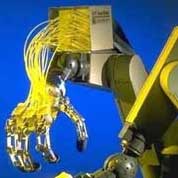
Position at TU Munich in
Cognitive Robotics
(wiss. Mitarbeiter BAT IIa)
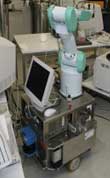
|
Here just a few links to our numerous local partners, some
with amazing robot hardware:
1. TUM Robotics and Embedded Systems 2. TUM Applied Mechanics and Walking Bipeds 3. TUM Vision and AI 4. TUM Robot Vision, Real- Time Systems 5. TUM Sensor Tech 6. DLR Robotics and Mechatronics, German Aerospace Center 7. TUM Automatic Control Engineering 8. TUM Media Tech 9. TUM Vehicle Tech 10. TUM Machine Tech 11. TUM Informatics 12. TUM Theoretical Biophysics 13. TUM machine tools 14. Munich Center for Sensor-Motor Systems 15. LMU, the other big Munich university |
|
Schmidhuber (of
IDSIA
and
TUM) is seeking
an outstanding postdoc or PhD student interested in
robot learning,
reinforcement learning,
recurrent neural networks,
hierarchical learning,
and
curiosity- driven learning.
The goal is to build robots that learn from experience.
Location: TU Munich. The robot lab at TUM is a great place for adaptive robotics, with state-of- the-art facilities, several unique and expensive robots, and many connections to other leading robotics institutes (left). There is a possibility to interact with robot projects at IDSIA (Switzerland), where we are offering related jobs. Possible start: 1 October 2004 or later. Salary according to the official BAT IIa scale. There is travel funding available in case of papers accepted at important conferences. Some participation in teaching / tutoring is expected. Knowledge of German would be a plus, but is not mandatory. Applicants should submit as soon as possible: (i) Curriculum vitae, (ii) List of three references and their email addresses, (iii) Brief statement on how their research interests fit the topics above. |
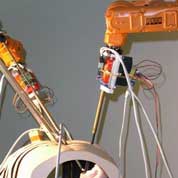
| Submit your application as plain text file (or pdf) by email to juergen@ idsia.ch (no .doc files, please). Do NOT send large files; instead send URLs. In the subject header, please mention your name and the keyword bat2004. For example, if your name is Jo Mo, use subject: Jo Mo bat2004. |
| Above: TUM's mobile biotech lab. Left: TUM made the first bots to tie knots! More. |

| TUM is a leader in the fields of automation and robotics. And the recent FOCUS survey (20 Sept 2004) ranked TUM first among Germany's universities, right ahead of LMU (also in Munich). There are strong connections to industry leaders such as BMW and Siemens, both headquartered in Munich. Many foreign tech companies also have their German headquarters here, such as GE and Microsoft. |
| 13 Nobel laureates are associated with Munich, 4 of them with TUM. Not counting Einstein and others who just went to school here. |
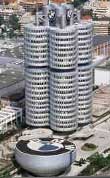

| Munich is one of the world's most livable places, and gets consistently voted as Germany's most attractive city. Lots of culture, lots of fun, more than 100,000 students, the world's largest festival (Oktoberfest), scenic Bavarian surroundings with lakes and rivers and hills and meadows and bikepaths and castles and beer gardens, close to major ski areas etc. |
| Schmidhuber has seen the world, and claims there is no more beautiful region than the pre-alpine land between Munich and the Alps. (He's biased though - he was born in Munich.) |
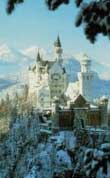

| Why study in Germany? It is a good place for scientists and inventors, with a long tradition of fundamental breakthroughs that define today's world, including Western bookprint, calculus, calculator, math a la Gauss, combustion engine, car, dynamo, electric locomotion, general relativity, quantum physics, artificial fertilizer, the computer, controlled heavy flight, helicopter, jetplane, uranium fission, and innumerable others. |
| Until the mid 20th century Germany boasted more Nobel prizes than any other nation. And it is still a fine place for robotics: the world's second largest producer and user of robots, after Japan. And the world's largest exporter. |